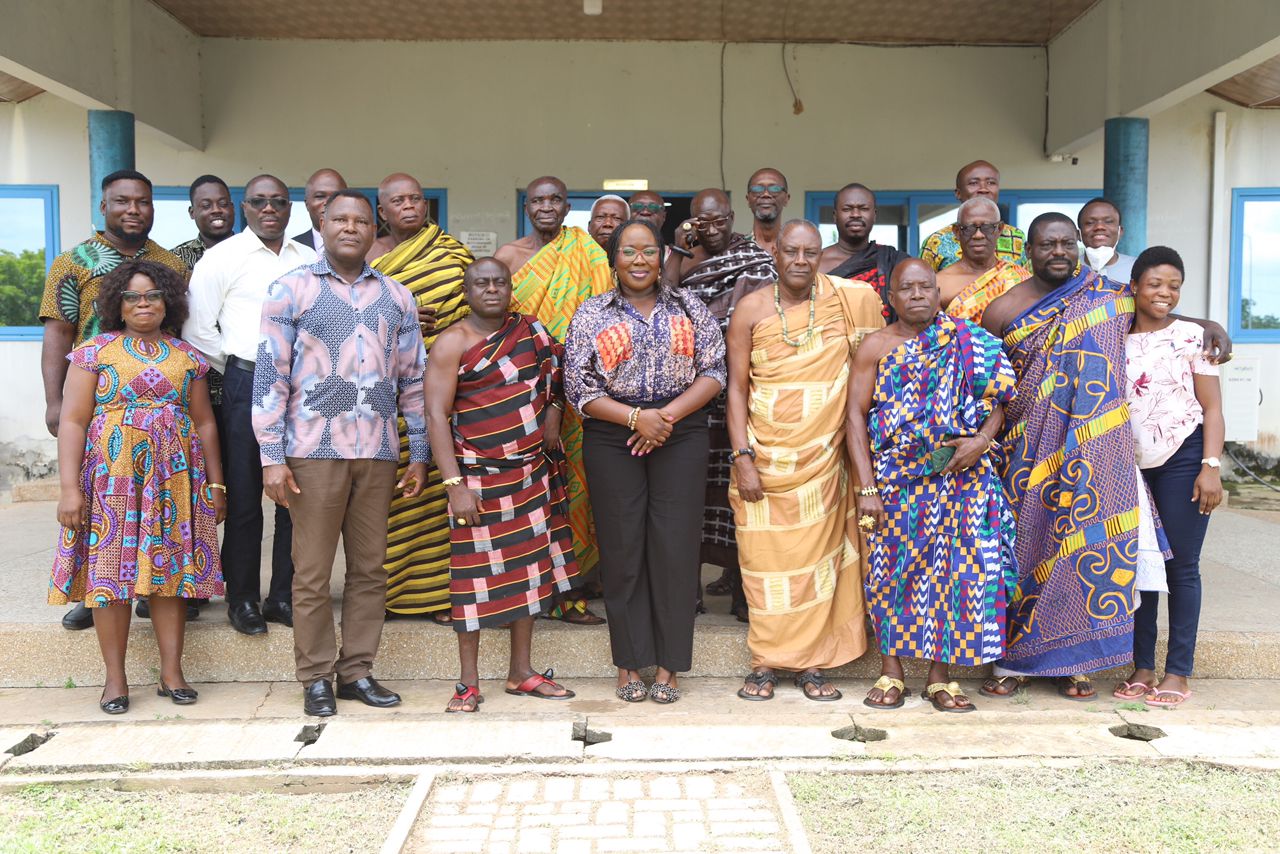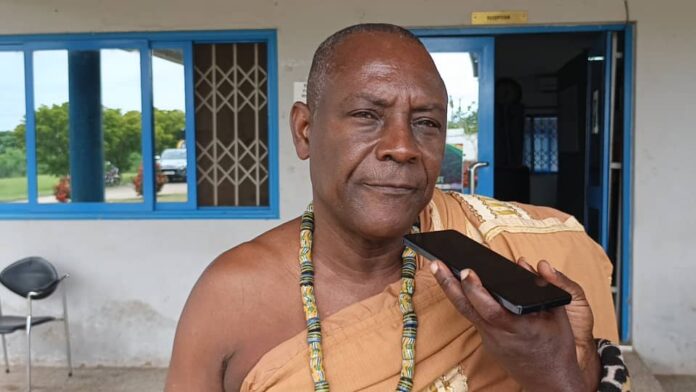The president of the Oti House of Chiefs, Nana Soglo Alloh IV, has called on the government to consider reviewing the Minerals and Mining Policy Act.
He made the statement during an engagement between the Minerals Commission, under the Ministry of Lands and Natural Resources, and the Oti Regional House of Chiefs in Dambai. The meeting was part of a nationwide series of consultations aimed at gathering input from traditional leaders on the ongoing review of Ghana’s Minerals and Mining Act, 2006 (Act 703), and the 2014 Minerals and Mining Policy.
This 15th consultation brought together paramount chiefs and other stakeholders from across the Oti Region to discuss reforms aimed at aligning Ghana’s mining laws with global trends, addressing environmental concerns, and enhancing community participation in natural resource governance.
Participants deliberated on several issues, including the percentage of gold revenue allocated to traditional authorities, accessibility of Minerals Commission offices to mining communities, and procedures for acquiring mining leases.

Nana Soglo Alloh, also the paramount chief of the Likpe Traditional Council, expressed concern about mining leases being granted without the prior consent of chiefs. He warned that such practices undermine traditional authority and may cause disputes between communities and mining companies.
He proposed an amendment to the constitution to prioritize the interests of landowners over those of the government and called for the establishment of a Minerals Commission office in the Oti Region to better regulate mining activities.
Speaking to Adom News, Dr. Ahmed Tijani, Manager of Corporate Affairs and IT at the Minerals Commission, acknowledged past gaps in engagement with traditional leaders. He assured the chiefs that the Commission is committed to consulting traditional authorities before granting licenses to mining companies.
Dr. Tijani emphasized that developments in mining technology, the global focus on climate action, the rise of transition minerals like lithium, and lessons from the current legal framework necessitate updates to the laws. He stressed that the revised framework must balance economic growth with environmental sustainability and the welfare of host communities.
The nationwide consultations aim to gather insights from mining communities, industry players, civil society organizations, and policymakers. The Minerals Commission believes the final amendments will create a more transparent, inclusive, and accountable mining sector that benefits both the nation and local communities.
Source: Obrempongba K. Owusu
ALSO READ:



